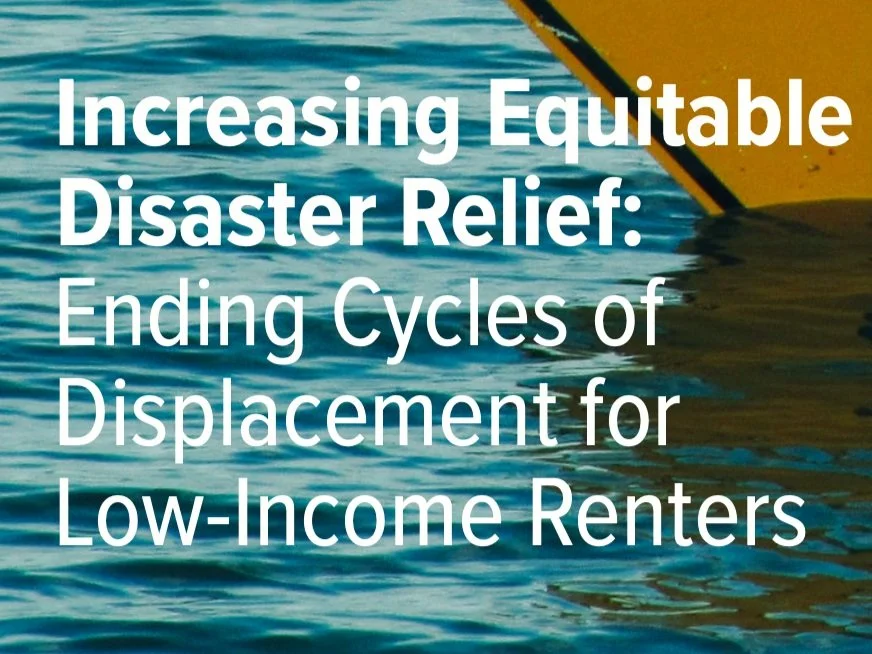Increasing Equitable Disaster Relief: Ending Cycles of Displacement for Low-Income Renters
By Ella Israeli
As climate change continues to proliferate, extreme weather events will increase in severity and numbers over the next 30 years. This year is predicted to have the seventh consecutive above-average hurricane season, with the National Oceanic and Atmospheric Administration (NOAA) forecasting 6-10 hurricanes, including 3-6 major ones. According to the National Interagency Fire Center, fire activity has already increased this May, with year-to-date acres burned 112 percent above the 10-year average, and another above-normal fire season forecast. All of this is occurring while many communities are still recovering from last year’s extreme weather events — including Hurricane Ida in the Gulf South and the Northeast, Winter Storm Uri in Texas, wildfires throughout the West — in addition to the ongoing effects of the coronavirus pandemic.
Recent Data for Progress polling finds that 47 percent of likely voters are “somewhat” or “very concerned” about being displaced from their homes due to an extreme weather event; however, only 38 percent of those polled think the federal government is providing sufficient support to Americans for disaster relief. Worries about climate displacement reflect a clear, underlying concern that the U.S. government is not prepared to provide the support that displaced Americans may need.
Displacement is not as uncommon as it may sound. More than a third of likely voters have been displaced or know someone who has been displaced by an extreme weather event. As climate change continues to drive more frequent and intense disasters, this number is likely to rise.
Not all individuals and communities are affected by extreme weather events to the same degree. Rather than being great equalizers, major disasters are “shocks” that expose and exacerbate existing socioeconomic inequalities. Low-income renters are some of the most vulnerable in the face of extreme weather, and experience cycles of displacement and housing insecurity after disasters strike. Local and state governments across the country are already investing in community-based resilience projects, while the Biden Administration and FEMA are rightfully starting to acknowledge the need for equitable disaster relief at the federal level. However, the changes made federally need to be codified by Congress to ensure that efforts to make communities more resilient to climate change are feasible, equitable, and scalable.
Current policies at the local, state, and federal levels are promising but insufficient to address the cycle of displacement faced by low-income renters impacted by extreme weather. This policy memo proposes additional policy recommendations for addressing inequitable post-disaster relief and housing insecurity, including: keeping people housed with dignity, passing proposed state and federal bills to codify desperately needed changes; and investing in resilience projects that create local jobs.

